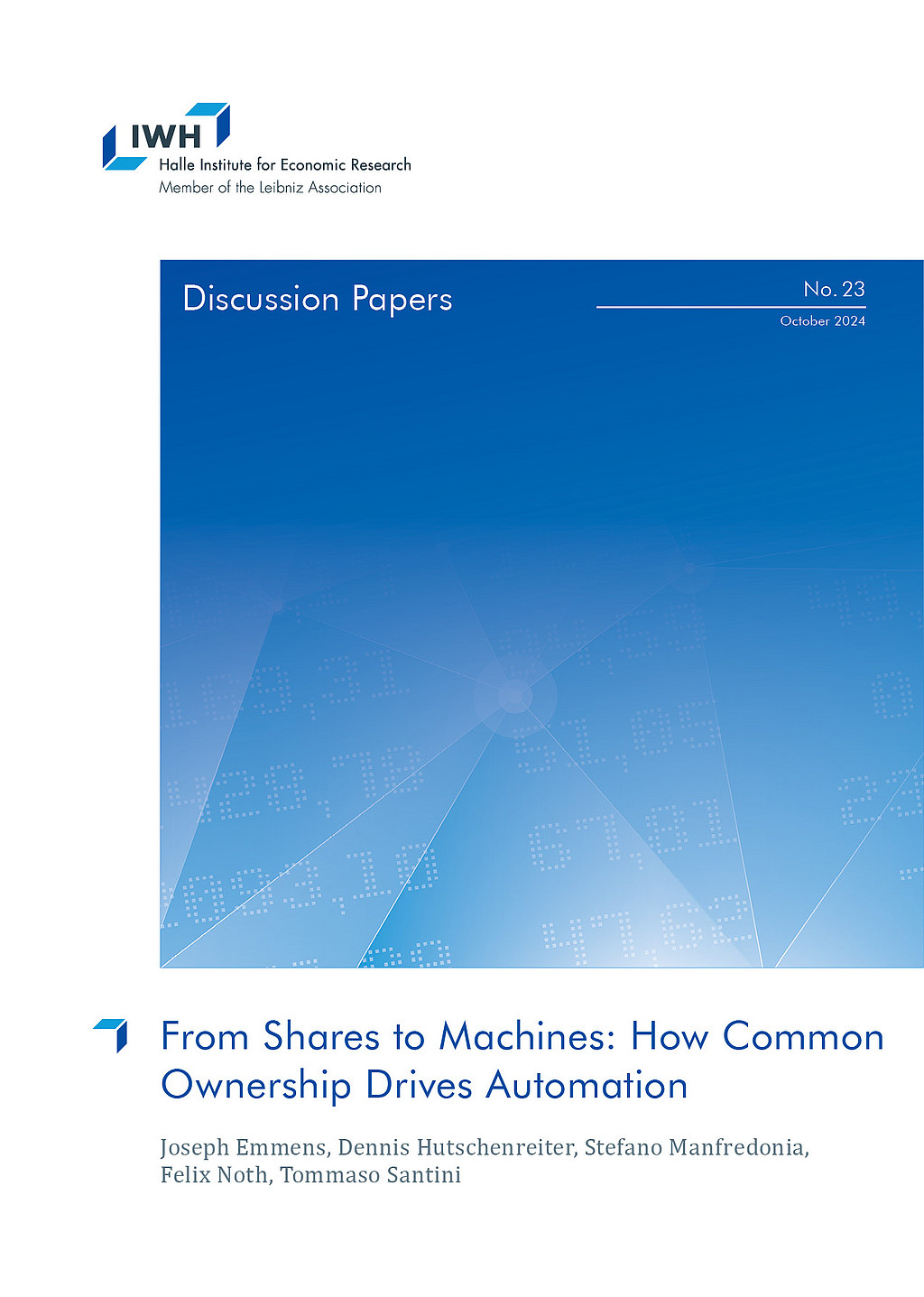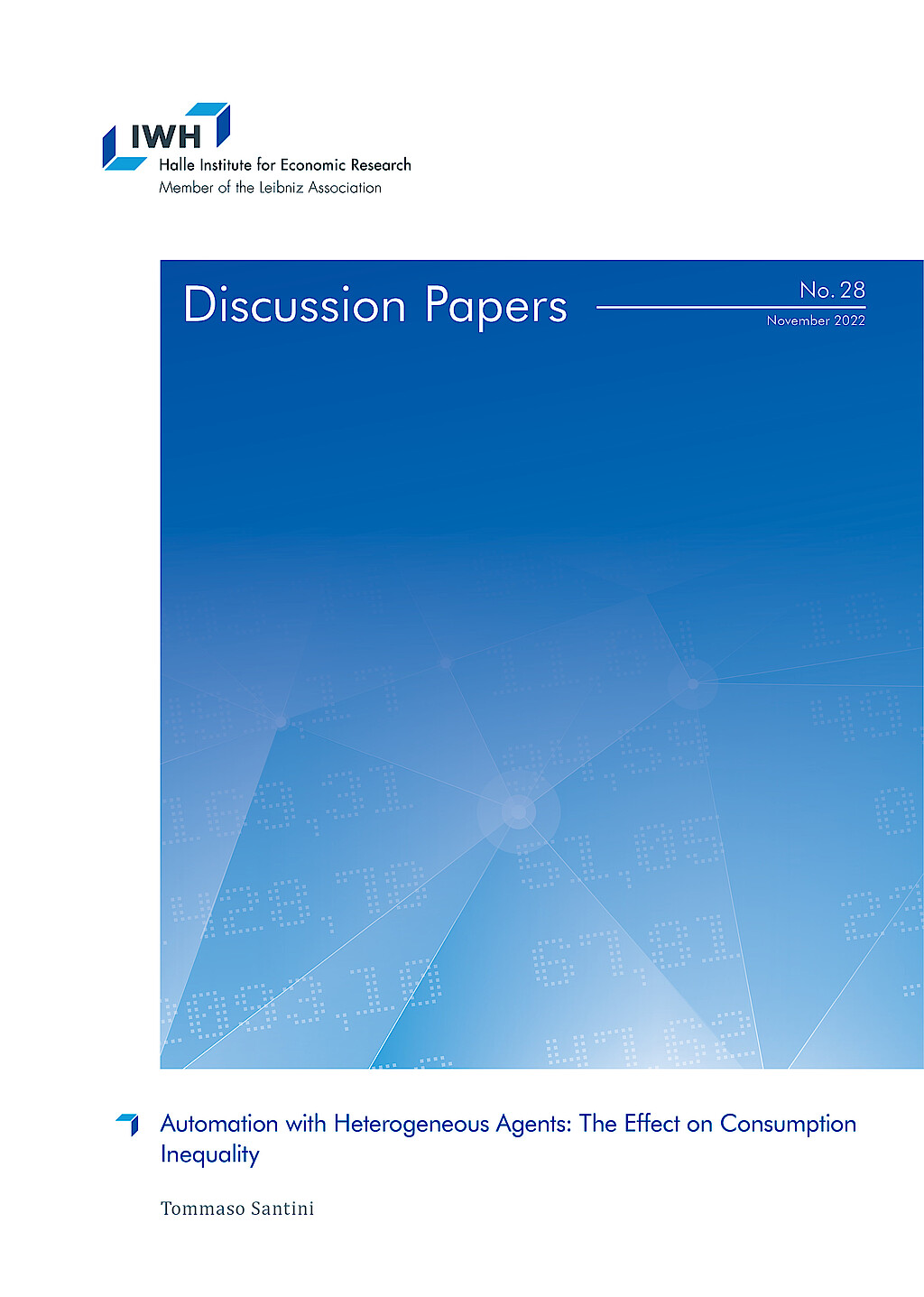Tommaso Santini, Ph.D.

Aktuelle Position
seit 9/22
Wissenschaftlicher Mitarbeiter der Abteilung Strukturwandel und Produktivität
Leibniz-Institut für Wirtschaftsforschung Halle (IWH)
Forschungsschwerpunkte
- Makroökonomik
- Arbeitsmarktökonomik
- technologischer Wandel
- Innovation
- Wirtschaftswachstum
Tommaso Santini ist seit September 2022 wissenschaftlicher Mitarbeiter in der Abteilung Strukturwandel und Produktivität. Seine Forschungsschwer- punkte liegen in den Bereichen Makroökonomik, Arbeitsmarktökonomik und technologischer Wandel.
Tommaso Santini hat an der Sapienza Università di Roma studiert. Er promovierte an der Universitat Autònoma de Barcelona. Nach der Promotion arbeitete er als PostDoc an der Universidad Carlos III de Madrid.






